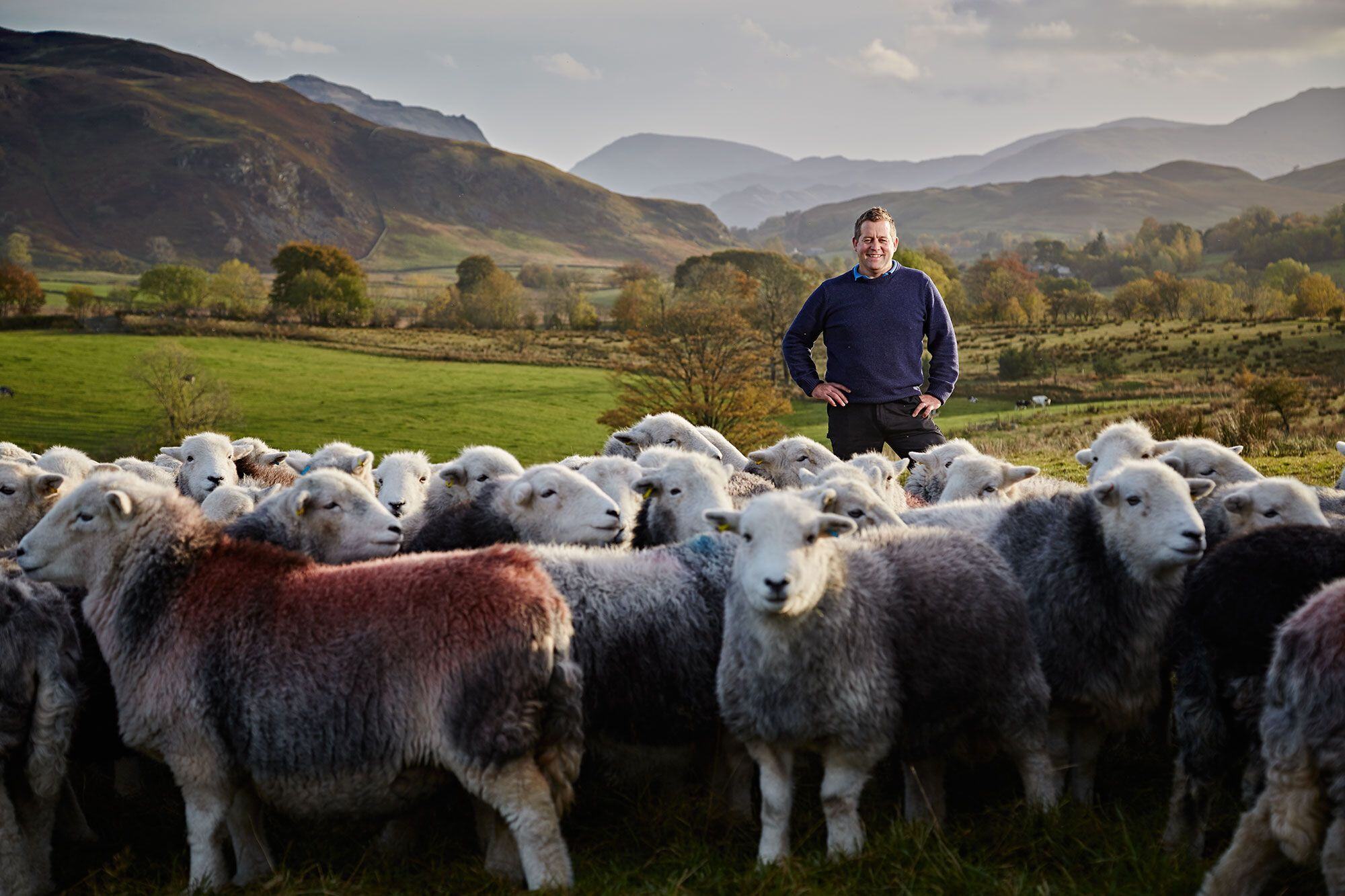The British Aisle: Why Supermarkets Should Support British Farmers
Appinio Research · 09.07.2024 · 9min read

Back to Blog
Farming is fundamental to the British countryside, economy and culture.
In our study The British Aisle: Britishness in Retail, we asked 1,000 participants why they buy British.
Season 3 of Amazon Prime’s ‘Clarkson’s Farm’ became the streaming service’s most-watched series, going some way towards demonstrating our love of British farmers as well as of Diddly Squat Farm.
The agricultural industry contributed £13.9 billion to the UK economy and there are over 100,000 farmers in the UK. Just under half of the food eaten at British dinner tables is produced in the UK, and 17 million hectares of British soil is agricultural land.
(Gov.uk)
There's no doubting that farming is as quintessentially British as strawberries and cream, so it's no wonder that the British public has a strong interest in supporting British farmers.
To take a closer look at what people think about the topic of Britishness in retail, check out the Appinio interactive board.
The Importance of Buying British
Farmers are facing significant challenges including; competition from international producers who can undercut prices, increasingly unpredictable weather conditions, changes as a result of Brexit, and labour shortages. In fact, a 2023 Government audit showed 16% of farmers said they planned to quit and a further 17% said they would be reducing the size of their business.
(Gov.uk)
It’s clear to most shoppers that we need to protect British producers. The majority of shoppers in the UK believe that it’s important for the supermarket they shop at to support British farmers. Only 4% of respondents said that supporting British farmers wasn’t important to them when they’re deciding where to do their grocery shop.
Conversely, 77% of people believe supporting British farmers is important or very important, making it a very strong motivating factor behind shopper choice.

Our Appinio data also suggests that price sensitivity has little impact over whether people value supporting British farmers, meaning that across various budgets, people are interested in doing their bit to support local producers.
Who Supports British Farmers?
41% of respondents said they always buy British produce when it's available, a further 50% often buy British produce when they can. Overall, people have a preference for British produce and that is reflected in actual purchasing decisions too.
Younger demographics have a stronger conviction to buy British produce; 55% of 18-25 year olds said they always buy British, which is strong compared to the average and even stronger compared to 35-44 year olds, 35% of which said they always buy British.
It seems to be the case that Gen Z and Millennials are more motivated to support British farmers, and it's likely that this trend will continue to grow. Younger age groups, unlike older age groups, did not report having a strong preference for British produce over international produce, suggesting that their purchase decisions are driven by principle and not preference.
Some supermarkets are more strongly associated with supporting British farmers than others - with Tesco being viewed as the supermarket which does the most to support local producers.
When asked, 'which supermarkets do you associate with supporting British farmers and British produce'
- Tesco 52% agreed
- Sainsbury's 42% agreed
- M&S 42% agreed
- Morrison's 40% agreed
- Waitrose 34% agreed
- Lidl 32% agreed
Why People Choose British Products
When it comes to the products’ attributes, shoppers strongly associate British food and British ingredients with being good quality and fresh, 46% and 44% selected these attributes respectively.
As a comparison, other attributes like seasonality, sustainability and value for money ranked in the 20%-25% range.
The association with better quality and freshness is a major driving factor for choosing British products over products from other countries. 64% of people said they buy British food because of its superior quality and freshness, making it the second-strongest reason for choosing British products.
The strongest reason was to support local farmers, 69% of people said this was a reason why they buy British products over products from other countries.
There are plenty of other reasons too;
- 52% said because there are less food miles
- 50% said because there is better animal welfare
- 44% said because there are more sustainable farming techniques
- 41% said because there’s less food waste
The Impact of the Cost of Living Crisis

Surprisingly, the Cost of Living Crisis has not had a negative impact on people choosing to buy British. Only 5% of people said they’d cut their spending, and only 1% said that they’ve stopped buying British produce because of rising costs.
20% of people acknowledge that they’re spending more because they have to due to rising costs, suggesting spending is only increasing because prices are increasing for this sub-set of respondents. However, 30% of people said they’ve spent more on British produce because they want to over the last 6-month period, this group shows a conscious willingness to pay more and is happy to go above and beyond price increases in order to continue supporting farmers. Suggesting that shoppers will continue to support British Farmers despite tightening purse strings.
Overall, the largest proportion said that their spending on British produce has stayed that same. Because 35% of people are maintaining their spend, we can infer that consumers are not willing to cut back on the cause of supporting farmers nor sacrifice quality and freshness of ingredients.
Where are People Spending More?
Not supermarkets. Well, that’s not strictly speaking true because 31% of people who are increasing their spend said they’ll pay more for British products when they’re at a supermarket.
Certainly, supermarkets are capturing some of the increased budgets for British goods.
However, supermarkets were actually the least common place where shoppers would dedicate more funds for their British-filled baskets.
People are much more likely to spend their increased budgets at farmers markets and speciality stores. For 55% of people who are willingly spending more, this is where they go. Online stores and local grocery stores each also capture 45% of people who are willing to spend more.
So you can see, supermarkets are lagging behind by quite some margin. This could be because shops that focus on higher end, extremely local and artisanal products have a more obvious connection with the producers that supply them and therefore people choose to go there.
Want to see the full data set? You'll find more detailed demographic comparisons, interactive graphs, more info on marketing activations that promote Britishness and our recommendations.
Want to run your own study?
Then take your market research efforts to the next level, sign up to Appinio for free and talk to us.
Get facts and figures 🧠
Want to see more data insights? Our reports are just the right thing for you!


